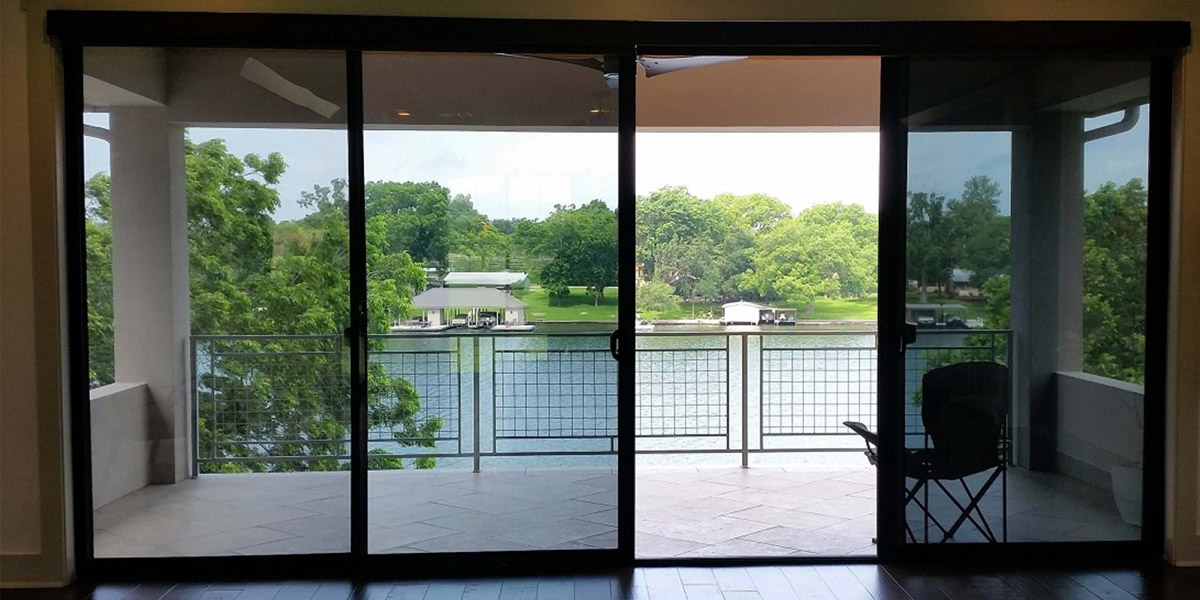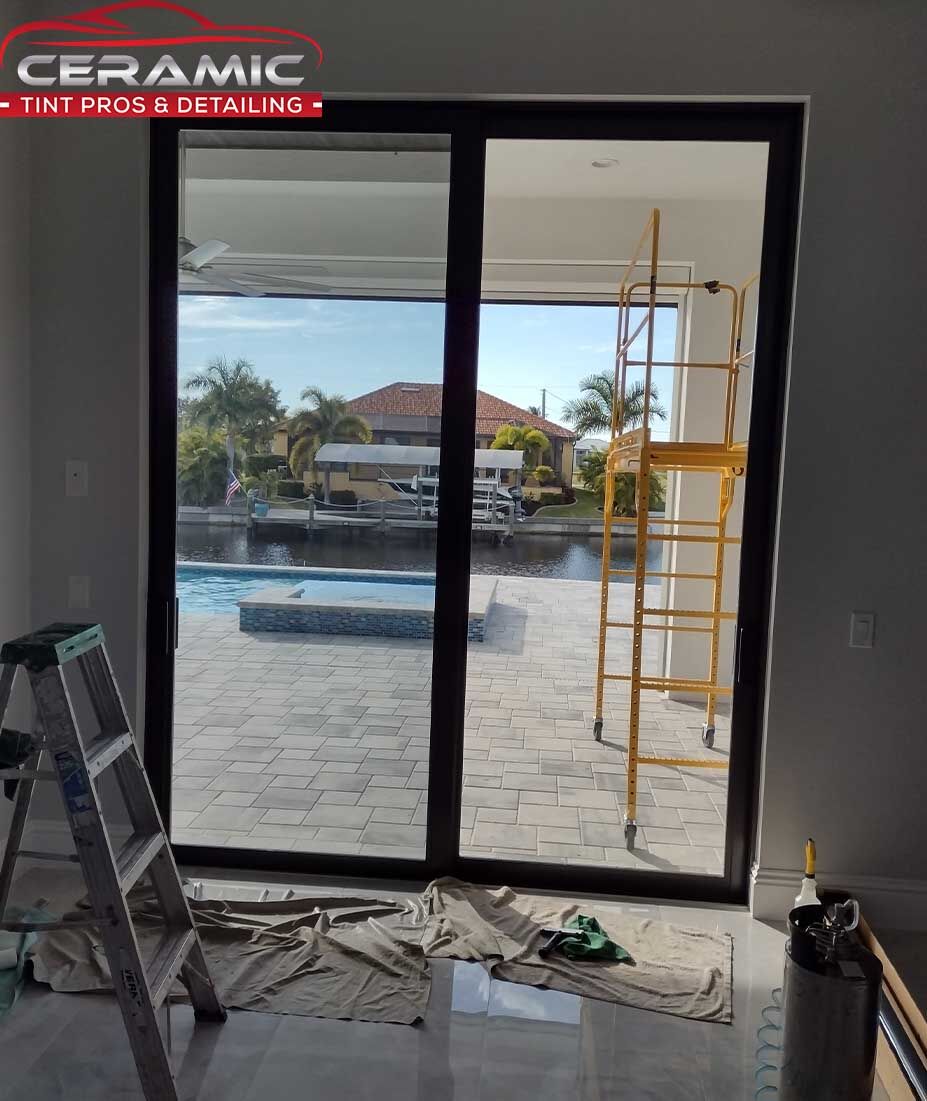Exactly How Residential Window Tinting Improves Your Home's Power Efficiency
Residential home window tinting provides an engaging service for house owners seeking to improve energy effectiveness within their space. By using specialized films to home windows, it efficiently lowers warm transfer, therefore supporting interior temperatures and decreasing the requirement for excessive home heating or air conditioning. This not just cuts energy usage however also supplies an extra comfortable atmosphere by mitigating glare. Nevertheless, recognizing the nuances of exactly how tinting jobs and selecting the proper kind for your home can be critical. Curiously, what elements should one take into consideration before making this investment?
Recognizing Home Window Tinting
Comprehending home window tinting is essential for house owners looking for to improve both comfort and power performance in their living areas. Residential Window Tint. Home window tinting entails the application of a thin film to the interior or exterior surface of glass home windows. This film can considerably modulate the amount of sunlight and heat that enters a home, thus influencing indoor climate problems
There are various kinds of window tinting movies readily available, each with distinctive residential properties. Dyed films absorb solar power, while reflective films disperse it away from the glass surface area. Ceramic movies provide a balance of presence and warmth being rejected, making them a prominent option among house owners. The efficiency of window tinting is often measured by its Visible Light Transmission (VLT) percent, which shows just how much light can travel through the movie.
Benefits of Energy Performance
Window tinting not just improves aesthetic appeals but additionally plays a considerable function in boosting energy performance within property rooms. By reducing warmth transfer through home windows, colored films produce a more secure indoor climate, which can result in substantial reductions in power consumption for cooling and heating. This energy performance translates into reduced utility costs, supplying homeowners with substantial lasting financial savings.

Furthermore, window tinting enhances the convenience of living areas. By reducing glow and obstructing dangerous UV rays, tinted home windows create an even more pleasurable environment, which can lead to boosted wellness for passengers. The security against UV rays additionally assists preserve furnishings and flooring from fading, contributing to the long life of home items.
Exactly How Tinting Works
Tinting movies operate via a mix of advanced products and technologies designed to regulate the amount of solar power entering a click to read more home. Largely composed of polyester, these movies commonly incorporate ceramic or metallic fragments that soak up and reflect warm. This twin capability permits them to considerably reduce the penetration of ultraviolet (UV) rays and infrared radiation while allowing visible light to go through.
The effectiveness of window tinting is gauged by its solar heat gain coefficient (SHGC), which suggests just how much solar power is transferred via the window. Lower SHGC worths are preferable as they represent higher heat rejection. In addition, window colors can include a variety of shades, permitting homeowners to personalize their visual choices while enhancing energy effectiveness.
In addition, these films serve as an obstacle, avoiding warm loss throughout cooler months by reflecting interior warmth back into the space. This thermal insulation result enhances the air conditioning benefits obtained during warmer months, contributing to a balanced indoor climate year-round. By handling solar power effectively, property home window tinting not just improves comfort however additionally plays an essential duty in reducing power intake and reducing utility expenses.
Selecting the Right Tint

There are numerous types of window films offered, including colored, metalized, and ceramic. Ceramic movies supply outstanding warm control without jeopardizing exposure and are highly durable, making them a prominent option.
Visible light transmission (VLT) is another crucial factor, as it shows the quantity of natural light that can pass with the tinted glass. Home owners ought to pick a color with a VLT that complements their lights choices while still providing adequate glow reduction.
Additionally, evaluating the solar warm gain coefficient (SHGC) can help identify exactly how well a color can obstruct warm from sunlight. A lower SHGC suggests far better heat control, eventually boosting power effectiveness.
Installment and Maintenance Tips
Appropriate installation and maintenance are vital components in making the most of the advantages of domestic home window tinting. Experts additionally use specialized strategies and tools, which can improve the resilience and performance of the color.
Complying with installment, upkeep is important to extend the life of the home window movie. It is advised to wait at least 30 days before cleaning read more up the colored home windows to permit the adhesive to treat completely.
Attending to these problems quickly can avoid further damages and maintain energy performance. By sticking to these setup and maintenance tips, homeowners can ensure their window tinting proceeds to give considerable energy savings and convenience for years to come.
Verdict
In verdict, property window tinting functions as a reliable option for enhancing power effectiveness within homes. By decreasing heat transfer and obstructing damaging UV rays, home window films contribute to decrease energy intake and enhanced indoor convenience. The selection of suitable tinting products, together with proper installment and maintenance, additionally maximizes these advantages. Ultimately, home window tinting represents a lasting investment that not only lowers energy costs however also advertises a comfy living environment throughout the year.
Home window tinting involves the application of a thin movie to the interior or outside surface area of glass windows. By decreasing warmth transfer through windows, tinted movies develop a more steady interior environment, which can lead to substantial reductions in energy usage for home heating and air conditioning.The effectiveness of window tinting is gauged by its solar heat gain coefficient (SHGC), which suggests just how much solar power is transmitted through the window. By managing solar power properly, household window tinting not only enhances comfort but likewise plays a crucial duty in lowering power intake and lowering utility expenses.
By minimizing warmth transfer and obstructing unsafe UV rays, home window movies add to decrease power consumption and boosted interior convenience.
Comments on “Leading Benefits of Setting Up Residential Window Tint for Your Residential property”